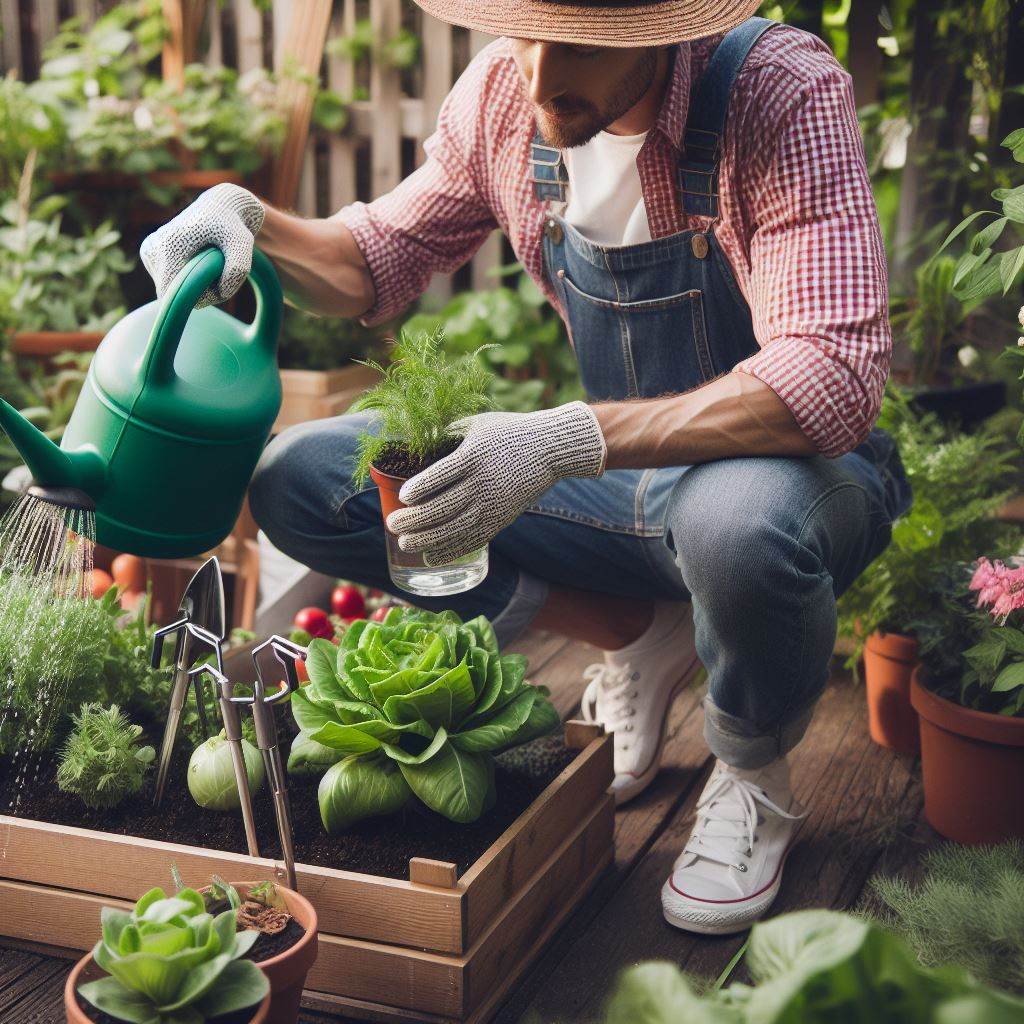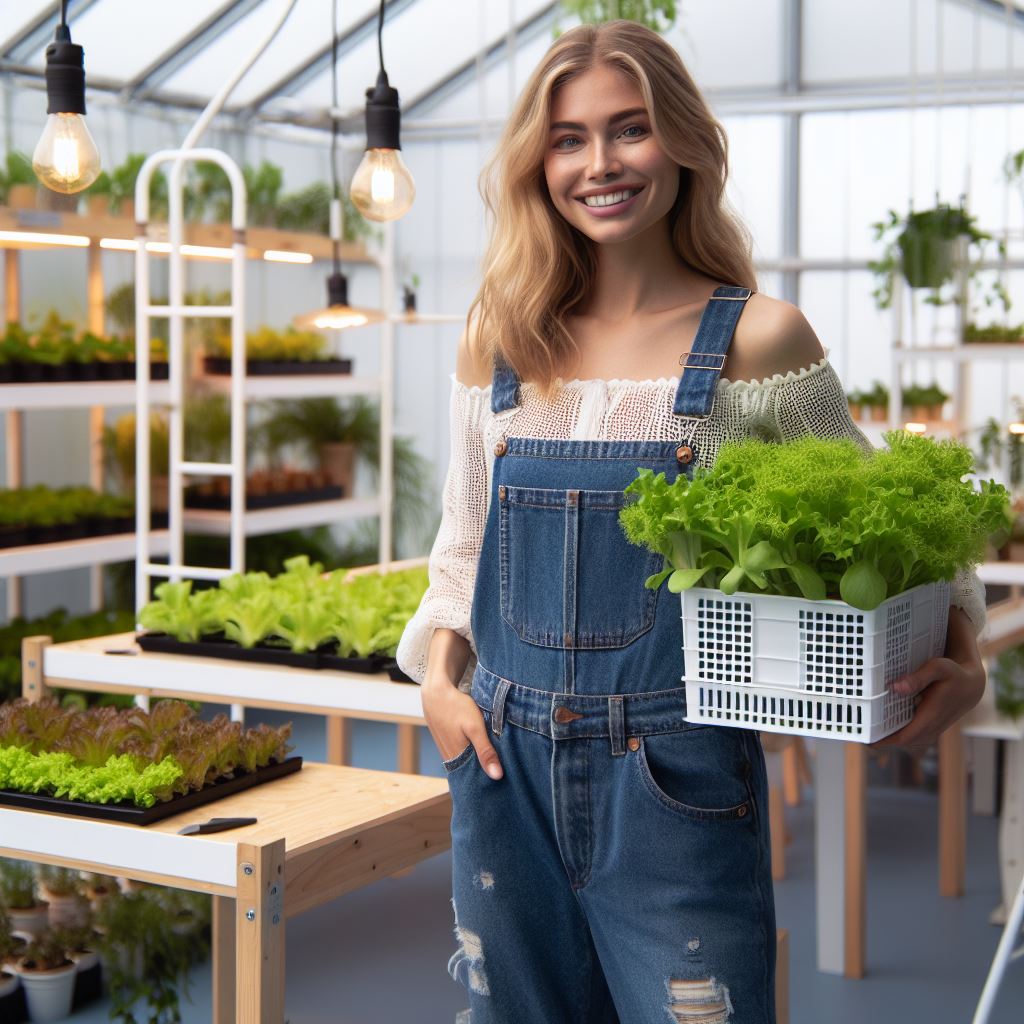Introduction
Implementing Eco Friendly Gardening Sustainable Practices is imperative for the preservation of our environment.
It involves sustainable practices that prioritize conservation and minimize harm to nature.
Sustainable gardening ensures the long-term health and productivity of our gardens and the surrounding ecosystems.
By adopting eco-friendly gardening practices, we can contribute to the preservation of biodiversity and combat climate change.
One of the key aspects of sustainable gardening is reducing the use of synthetic chemicals.
Instead, organic and natural alternatives such as compost, mulch, and biological pest control methods are used.
These practices not only protect beneficial organisms but also promote soil health and fertility.
Water conservation is another vital component of eco-friendly gardening.
Efficient irrigation systems, such as drip irrigation, minimize water wastage and ensure plants receive adequate hydration.
Moreover, collecting rainwater and using it for watering reduces reliance on freshwater sources.
Promoting biodiversity in our gardens is a significant step towards sustainability.
Creating wildlife habitats, planting native species, and avoiding invasive plants contribute to ecological balance and resilience.
By eliminating or reducing the use of synthetic fertilizers, we can prevent water pollution and protect aquatic ecosystems.
Lastly, composting kitchen waste and yard debris reduces landfill waste and provides nutrient-rich soil amendments.
Basically, eco-friendly gardening and sustainable practices are essential for safeguarding our environment.
Transform Your Agribusiness
Unlock your farm's potential with expert advice tailored to your needs. Get actionable steps that drive real results.
Get StartedBy implementing these strategies, we can create beautiful, productive gardens while minimizing our ecological footprint.
Together, let’s embrace the principles of eco-friendly gardening and contribute to a greener and healthier planet.
Read: Vertical Gardening: Maximizing Small Spaces
Benefits of Eco-Friendly Gardening
Reduces environmental impact
- By avoiding the use of synthetic pesticides and fertilizers, eco-friendly gardening helps prevent water and air pollution.
- It also reduces the risk of chemical contamination in the food we consume.
Preserves soil quality
- Eco-friendly gardening practices such as composting enrich the soil with organic matter, improving its structure and fertility.
- This leads to healthier plants that are more resistant to diseases and pests.
Conserves water resources
- Eco-friendly gardening promotes the use of efficient irrigation systems, like drip irrigation, which deliver water directly to plant roots.
- Mulching, another sustainable practice, helps retain moisture in the soil, reducing the need for frequent watering.
Supports biodiversity
- Eco-friendly gardens provide a habitat for a wide range of beneficial insects, birds, and other wildlife.
- Avoiding the use of harmful chemicals fosters a balanced ecosystem, as it preserves the populations of beneficial organisms.
Enhances overall garden health
- By using natural methods to control pests, eco-friendly gardening helps maintain a healthier balance in the garden.
- It promotes the presence of beneficial insects that prey on harmful pests, reducing the need for chemical interventions.
In essence, eco-friendly gardening offers numerous benefits that go beyond just a beautiful garden.
It positively impacts the environment and supports sustainable practices.
- It reduces the environmental impact by avoiding the use of synthetic pesticides and fertilizers, preventing pollution.
- The practice helps preserve soil quality by enriching it with organic matter through composting, resulting in healthier plants.
- Eco-friendly gardening conserves water resources by using efficient irrigation systems and mulching, reducing water wastage.
- It supports biodiversity by creating a habitat for beneficial insects and wildlife, contributing to a balanced ecosystem.
- Overall garden health is enhanced as eco-friendly gardening promotes natural pest control methods and the presence of beneficial organisms.
Switching to eco-friendly gardening not only benefits the garden but also plays a significant role in promoting sustainability and preserving the natural environment.
By incorporating these sustainable practices, gardeners can create a haven for plants, animals, and humans alike.
The rewards of eco-friendly gardening extend beyond aesthetics, providing a healthier and more sustainable way of interacting with nature.
So why not make a conscious choice to adopt eco-friendly gardening practices?
By doing so, we can contribute to a greener and more sustainable world for future generations.
Read: Seasonal Planting Guide for Organic Crops
Choosing Sustainable Garden Design
Native plants selection
In order to create a sustainable garden, it is important to consider various factors when designing your garden.
By choosing native plants, you can benefit both the environment and your garden.
Native plants are adapted to the local climate, soil, and wildlife, making them more resilient and low maintenance.
They also provide food and shelter for local animals, including birds and insects.
Examples of native plants vary depending on the region.
In the Northeast, popular native plants include Eastern Redbud, Blue Lobelia, and Butterfly Weed.
These plants provide beautiful blooms and attract butterflies and hummingbirds.
In the Southwest, Desert Marigold, Texas Red Yucca, and Arizona Poppy are well-suited for the arid climate and add vibrant colors to the landscape.
Organic gardening practices
Another important aspect of sustainable gardening is adopting organic practices.
By avoiding chemical pesticides and fertilizers, you can protect the environment and reduce your exposure to harmful substances.
Instead, use compost to improve soil fertility and provide nutrients to your plants.
Natural alternatives like neem oil can effectively control pests without harming beneficial insects.
Efficient water management
Efficient water management is crucial in eco-friendly gardening.
Showcase Your Farming Business
Publish your professional farming services profile on our blog for a one-time fee of $200 and reach a dedicated audience of farmers and agribusiness owners.
Publish Your ProfileRainwater harvesting techniques, such as using rain barrels or installing rain chains, help conserve water by collecting and storing rainwater for later use.
Drip irrigation systems are also beneficial as they deliver water directly to plant roots, minimizing water waste and allowing for precise control of irrigation.
Creating habitat for beneficial organisms
Creating a habitat for beneficial organisms is another sustainable gardening practice.
Building birdhouses provides shelter for birds, which can help control pests like insects and snails.
Bee-friendly structures, such as bee hotels, offer nesting sites for bees and support pollination in your garden.
Including pollinator-friendly plants like lavender, sunflowers, and bee balm will attract bees, butterflies, and other important pollinators.
In a nutshell, sustainable garden design involves selecting native plants, adopting organic practices, efficiently managing water, and creating habitats for beneficial organisms.
By implementing these practices, you can create a beautiful, environmentally-friendly garden that supports local wildlife and conserves resources.
Read: DIY Organic Fertilizers: Easy Recipes

Maintaining an Eco-Friendly Garden
Proper waste management
One of the essential practices in maintaining an eco-friendly garden is proper waste management.
It includes two important aspects: composting organic materials and recycling garden waste.
Composting organic materials like fruit and vegetable scraps, coffee grounds, and yard trimmings is a great way to turn waste into nutrient-rich soil amendments.
By recycling garden waste such as dry leaves and grass clippings, we can reduce the amount of waste going to landfills and create a sustainable cycle in our garden.
Mulching techniques
Mulching is another sustainable practice that helps maintain the health of an eco-friendly garden.
Firstly, it provides numerous benefits such as conserving soil moisture, preventing weed growth, and regulating soil temperature.
Additionally, mulch improves soil fertility by slowly breaking down and adding organic matter to the soil.
There are different types of mulch available, including organic materials like straw, wood chips, and grass clippings, as well as inorganic options such as plastic or stone mulch.
Choosing the right type of mulch depends on factors like the plants’ needs and the local climate.
Natural pest control
Using natural methods for pest control is not only better for the environment but also helps maintain an eco-friendly garden.
One effective approach is to encourage beneficial insects, like ladybugs and bees, to thrive in the garden.
They act as natural predators, feeding on harmful pests and keeping their populations in check.
Another method is companion planting, where certain plants are grown together to deter pests or attract beneficial insects.
For example, planting marigolds near vegetables can repel aphids, while attracting pollinators like bees.
To maintain an eco-friendly garden, proper waste management is crucial, including composting organic materials and recycling garden waste.
Mulching techniques, such as using organic or inorganic mulch, offer various benefits and promote healthier soil.
Lastly, natural pest control methods, like encouraging beneficial insects and practicing companion planting, help keep harmful pests at bay without relying on chemical pesticides.
By implementing these sustainable practices, we can create and maintain a beautiful garden that supports the environment and promotes a healthy ecosystem.
Read: Pollinator-Friendly Gardening: Bees & More
Conclusion
Sustainable practices in gardening are vital for preserving the environment and reducing our ecological footprint.
By adopting eco-friendly gardening methods, we can contribute to a healthier planet and create a more sustainable future.
For those seeking further learning or assistance with eco-friendly gardening, the following resources and references may be helpful:
- Books: “The Organic Gardener’s Handbook” by Frank Tozer, “Rodale’s Basic Organic Gardening” by Deborah L. Martin
- Websites: The Spruce, Mother Earth News, Gardening Know How
- Organizations: Sustainable Gardening Australia, National Gardening Association, Green America
Remember, by making small changes in our gardening practices, we can make a big impact on the environment.
Let’s work together towards a greener and more sustainable future!




